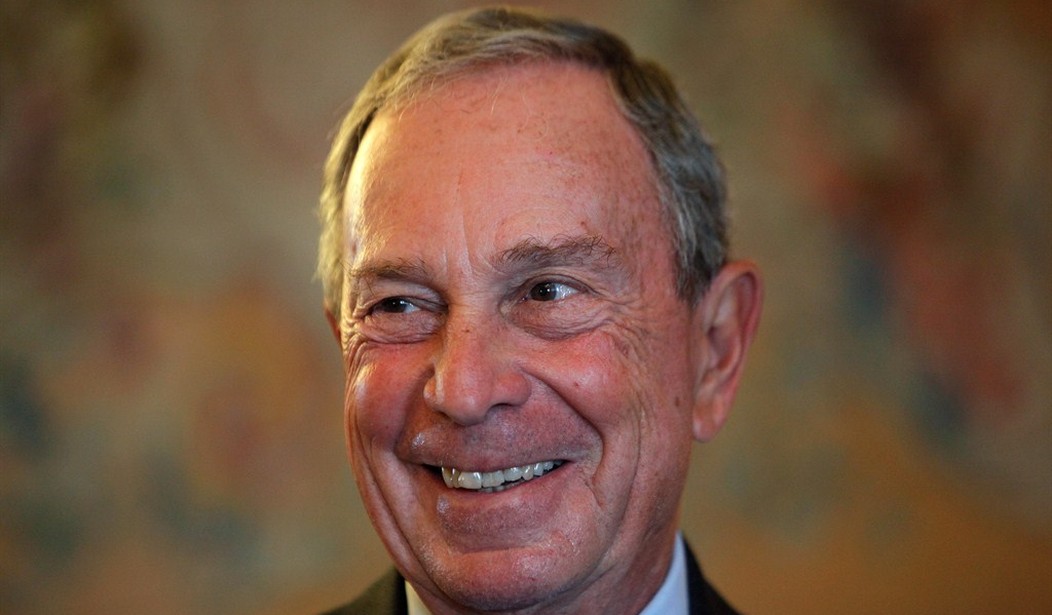With whispers that former New York City mayor and billionaire Michael Bloomberg may mull a run for the White House, politicos are already hyperventilating about how he would shake up the current field.
Would he run as a Democrat, a Republican or an independent (he's been all three)? Would he take on billionaire rival Donald Trump? Would he swing at Hillary Clinton (whom he reportedly does not like)?
Yet despite the excitement from election-watchers, Bloomberg's entry is unlikely and ill-advised anyway. In an interview with Byron York, Republican strategist Alex Castellanos summed it up: "Michael Bloomberg is a solution in search of a problem."
Indeed, you might say he's a "solutionist" in search of a problem. This persona was first described by Evgeny Morozov, author of "To Save Everything, Click Here: The Folly of Technological Solutionism." Morozov defined solutionism in the tech space as an "intellectual pathology that recognizes problems based on just one criterion: whether they are 'solvable' with a nice and clean technological solution at our disposal."
Of course, to a political solutionist, technology isn't necessary. He is the programmer, the app, the hacker and the intelligent designer.
As Morozov wrote, "Solutionists do not limit themselves to fixing the problems of individuals; they are as keen to fix the problems of institutions."
Here Bloomberg is king. From problems as endemic and complex as obesity and gun crime, Bloomberg believed that his job was to save people from themselves by supplanting their free will with his. In his mind, taking away the choice to buy guns, sodas, salt, trans fat, cigarettes -- all legal, by the way -- was an actual solution to a host of societal ills, ignoring that eradicating guns doesn't eradicate violent criminals and that a thirsty person can just buy two medium sodas instead of one Big Gulp.
Recommended
Unfortunately for Bloomberg -- and for the rest of us -- the 2016 presidential race already has two prominent solutionists.
Much has been made of the similarities between the GOP frontrunners Donald Trump and Ben Carson. They are both so-called "anti-establishment outsiders" who have never adventured in politics before. But the more informative unifying characteristic is that they are both rabid solutionists: They believe unflinchingly that because they are smart and successful in one arena they can solve any problem that comes their way (and without much effort, incidentally).
Some of this is forgivable. Politics -- especially at the presidential level -- requires a certain amount of hubris. Few people have the stuff to lead a nation of 300 million people. And fewer yet have the chutzpah to tell 300 million people that they are the one who does.
But it takes a special kind of hubris to be a solutionist. It stems from the belief that the problems mankind has spent all of history toiling to solve simply haven't benefitted yet from his wise contemplation.
Another Morozov adage: "Solutionists err by assuming, rather than investigating, the problems they set out to tackle."
Trump is the ultimate assumer. He leads with the solution and skimps on the details of getting there. How would he solve Syria? Don't worry about it, he'll bring in experts. Why exactly will Mexico pay to build a wall along its own border? Just trust him, it will.
Morozov again: "Learning to appreciate the many imperfections of our institutions and of our own selves at a time when the means to fix them are so numerous and glitzy, is one of the toughest tasks facing us today."
This message is for Ben Carson, for whom imperfection is merely a symptom of his absence and avoidable in his Utopian America where Muslims won't become president and homosexuality is solved by avoiding prison.
How would he solve the problems at our Department of Veterans Affairs? By eliminating it.
He told an Israeli that her country's system of government is too complicated and should just adopt ours. See? Problem solved.
In the first Republican debate he defended his ability to be president despite gaps in his political knowledge by saying "the thing that is probably most important is having a brain, and to be able to figure things out and learn things very rapidly." In short, nothing is truly unknowable for Carson, and therefore nothing is truly unsolvable.
The solutionists care little about party or politics, both of which are malleable and meaningless -- Bloomberg, Carson and Trump have straddled both sides of the aisle -- and so they care little about damaging the parties or political movements to which they have momentarily attached themselves.
But voters should be deeply skeptical of these solution salesmen with easy answers and one-size-fits-all problem patches. Complex problems are best sorted out by markets or confronted locally, not through one distant official's decree. While hubris can inform a presidential run, humility should inform a presidency.

























Join the conversation as a VIP Member